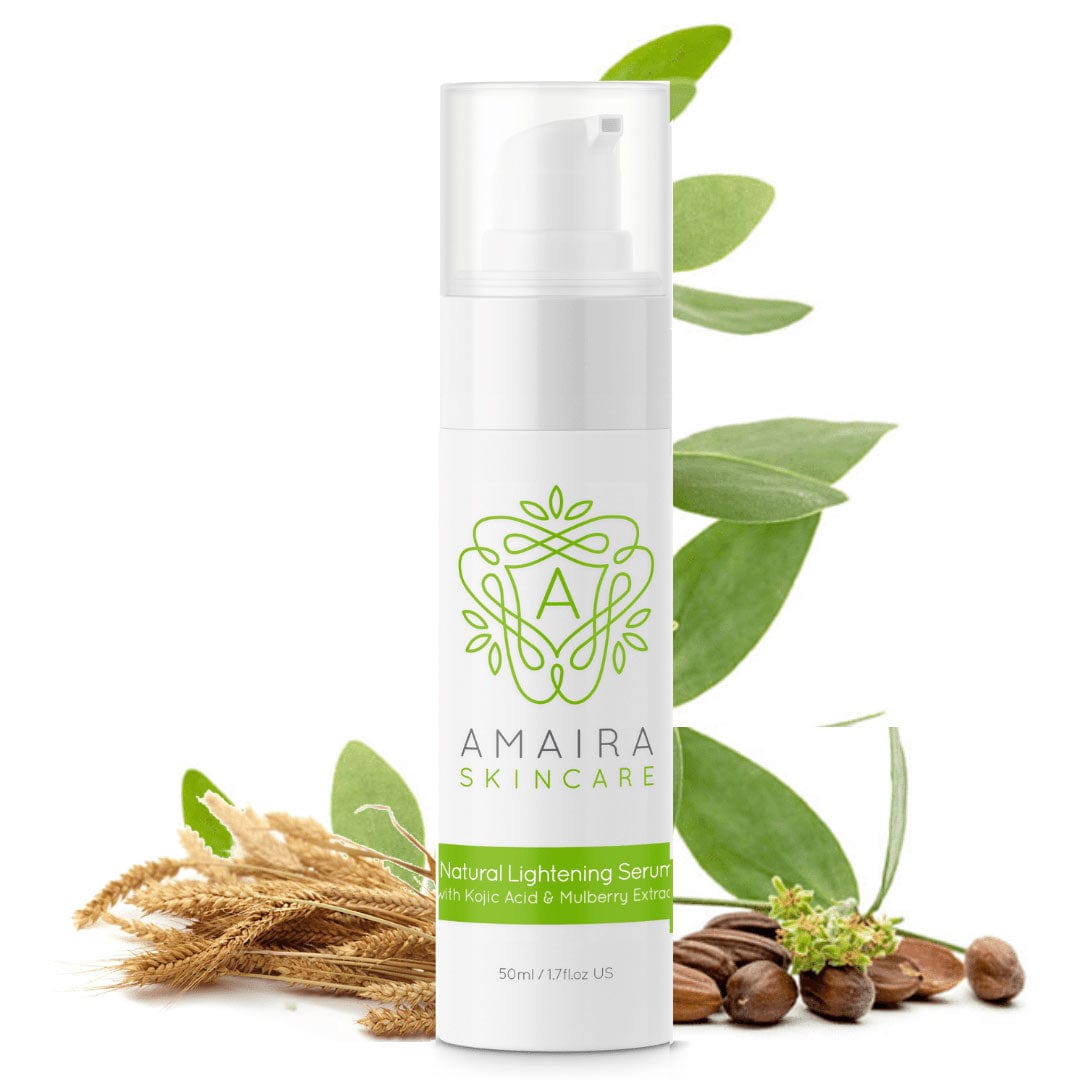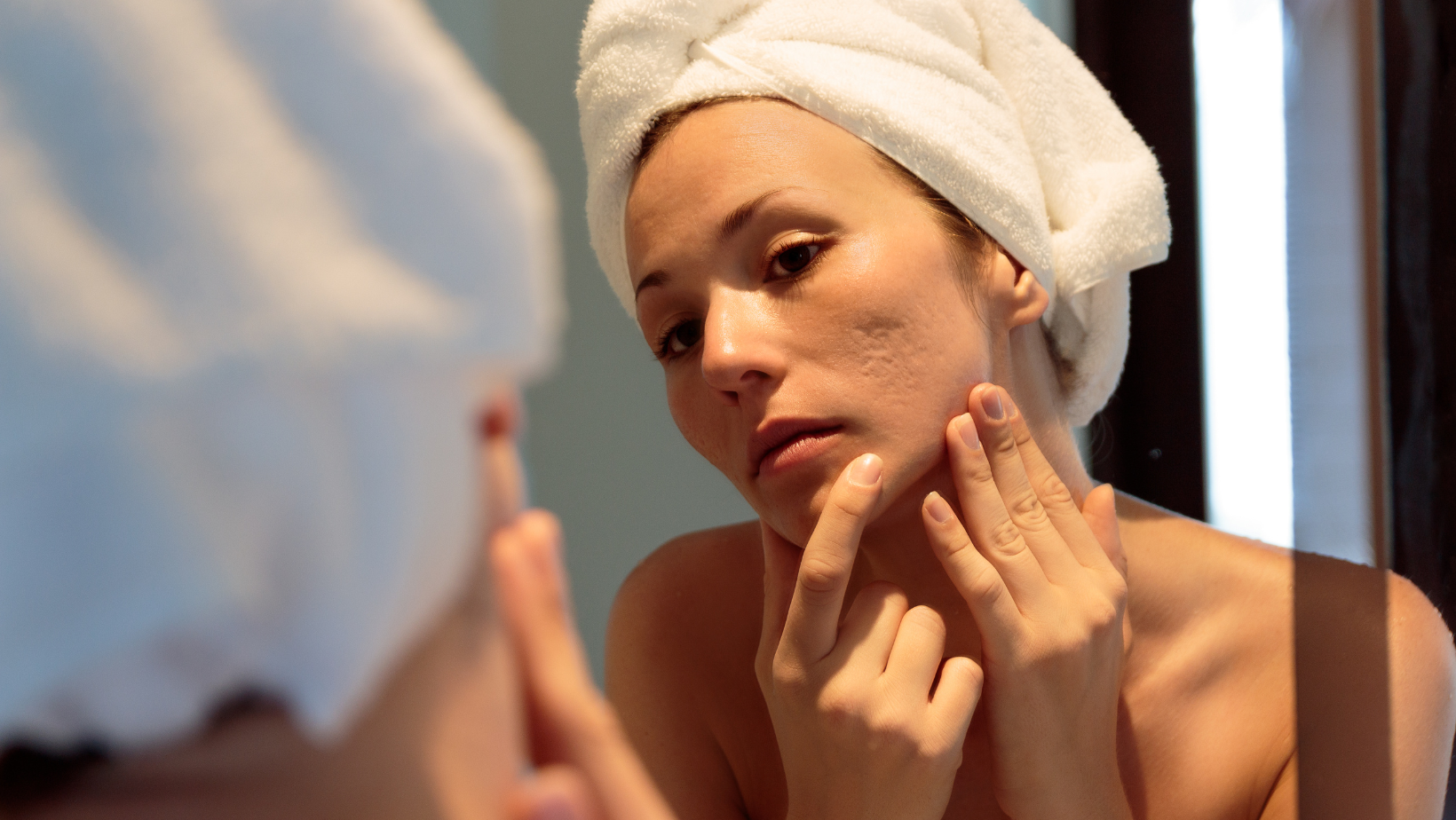Melasma is a common skin condition that causes dark, discolored patches to appear on the skin. This condition typically affects areas of the face such as the cheeks, forehead, nose, and upper lip.
Despite being harmless, melasma can cause distress due to its appearance, especially in more visible areas. In this article, we'll answer key questions about how melasma affects you, including what it is, its causes, symptoms, and treatments.
What is Melasma
Melasma is a common skin disorder, characterized by dark, uneven patches on the skin. The patches are typically brown or grayish-brown and appear mostly on the face, though other areas exposed to the sun, like the neck and forearms, can also be affected.
The pigmentation occurs because the cells in the skin that produce melanin (the pigment responsible for skin color) become overactive and create too much pigment in certain areas.
What are the Melasma Symptoms
The most obvious symptom of melasma is the presence of discolored patches on the skin. These patches are often:
- Symmetrical, meaning they appear on both sides of the face or body.
- Brown or gray in color.
- Found on the cheeks, forehead, upper lip, nose, and chin.
- Sometimes found on the neck and forearms if frequently exposed to the sun.
Melasma does not cause any physical discomfort, such as itching or pain, but its appearance can affect a person’s confidence and emotional well-being.
What are the Melasma Causes
There are several factors that can cause melasma, with exposure to sunlight being one of the most significant. The sun’s ultraviolet (UV) rays can trigger melanin production, leading to the formation of the dark patches associated with melasma. However, it’s not just UV rays that are to blame; hormones also play a major role, and melasma appears particularly in women.
Melasma Causes in Females
Women are much more likely to develop melasma than men, making up about 90% of those affected. This is largely due to hormonal changes. Common melasma triggers in women include:
- Pregnancy: Often called the "mask of pregnancy," melasma is common in pregnant women because hormonal changes can increase melanin production. The good news is that pregnancy-induced melasma often fades after childbirth.

- Hormonal Contraceptives: Birth control pills and hormone replacement therapy (HRT) can trigger melasma in some women due to increased levels of estrogen and progesterone.
- Genetics: If your mother, father, or other close relatives have had melasma, you might be more susceptible to developing it as well.
Is Melasma Dangerous?
Melasma is not dangerous. It’s a benign condition, meaning it doesn’t lead to serious health problems, and it isn’t painful or itchy. However, melasma can have a psychological impact due to its effect on appearance, especially when it appears on the face. Some people feel self-conscious about their skin, which can lead to decreased self-esteem or social anxiety.
Best Treatment for Melasma on the Face
There are several ways to treat melasma, but the best treatment will depend on the individual. Factors such as skin type, the severity of the condition, and lifestyle will influence the most effective approach.
Sun Protection
One of the most effective ways to manage melasma is by protecting your skin from the sun. Wearing a broad-spectrum sunscreen with an SPF of at least 30, avoiding direct sunlight, and wearing wide-brimmed hats can prevent the condition from worsening and may help reduce the appearance of dark patches.

Topical Treatments for Melasma
There are several creams and serums available that can lighten melasma patches over time. One of the best creams for treating melasma, is Amaira Natural Lightening Serum with Kojic Acid and Mulberry Extract.
This serum works by slowing down the overproduction of melanin, gradually lightening dark patches. It's made with natural plant extracts and is free of harsh chemicals like hydroquinone, which can sometimes cause irritation.
Amaira Natural Lightening Serum is particularly helpful for those looking for a gentle, natural option that is safe for sensitive skin. Regular use of the serum can help even out skin tone, and it is suitable for lightening hyperpigmentation in intimate areas as well.
Exfoliation
Gently exfoliating the skin can help remove dead skin cells, promoting the regeneration of new skin. Amaira Brightening Accelerator Wash is an excellent choice for this purpose.
This wash not only exfoliates but also contains brightening properties to accelerate the lightening process. Made from natural, plant-based ingredients, it is safe for use on sensitive skin areas, helping to support a clear, even complexion.
Other Options for Melasma Treatment
For more persistent or severe cases of melasma, a dermatologist may recommend other treatment options:
- Chemical Peels: These involve applying a chemical solution to the skin, which causes it to peel off, revealing fresher, more evenly pigmented skin underneath.
- Microdermabrasion: A procedure that removes the top layer of skin, microdermabrasion can be effective in lightening melasma patches, though it may require multiple sessions for noticeable results.
- Laser Treatments: Some laser treatments can help break down the pigment in melasma patches. However, laser treatments are not suitable for everyone, as they can sometimes worsen the condition in individuals with darker skin tones.
- Prescription Creams: For more stubborn cases, a doctor might prescribe creams with stronger active ingredients, such as hydroquinone, tretinoin, or corticosteroids, though these should be used with caution to avoid side effects.

Best Cream for Melasma Treatment
When it comes to finding the best cream for melasma, it’s important to choose one that suits your skin type and won’t cause irritation. Amaira Natural Lightening Serum is one of the top choices due to its gentle yet effective formula. It helps fade dark spots without the use of harsh chemicals, making it a safe option for those with sensitive skin or who are prone to irritation.
How to Prevent Melasma
Preventing melasma is often easier than treating it. Since sun exposure is one of the primary triggers, wearing sunscreen daily—even on cloudy days—can significantly reduce the risk of melasma developing or worsening. In addition, avoiding tanning beds and using sun-protective clothing, such as hats or long-sleeved shirts, can help protect your skin.
If you are taking hormonal contraceptives and notice melasma patches, talk to your doctor about alternative forms of birth control that don’t contain hormones, as this could help prevent the condition from worsening.
Living with Melasma
Living with melasma can sometimes be challenging, particularly if the dark patches affect your confidence. It’s important to remember that melasma is a common and harmless condition, and many treatment options are available to help manage its appearance.
By using sun protection, choosing the right treatments, and consulting with a dermatologist for more advanced cases, you can minimize the impact of melasma and maintain healthy, glowing skin.
FAQs - All About Melasma
1. What are the melasma causes in females?
In females, melasma is commonly linked to hormonal changes, such as those occurring during pregnancy, while taking oral contraceptives, or during hormone replacement therapy. Increased estrogen and progesterone levels can stimulate melanin production, leading to the dark brown patches.
2. What are the symptoms of melasma?
The primary symptom of melasma is the appearance of dark, discolored patches on the skin. These patches can be light brown, or grayish-brown and typically occur symmetrically on the face. In some cases, melasma can also appear on the neck, arms, or other areas exposed to sunlight.
3. Is melasma dangerous?
No, melasma is not dangerous. It is a benign condition, meaning it doesn’t cause any health problems or lead to skin cancer. However, melasma can affect a person’s self-esteem and confidence due to its appearance.
4. What is the best treatment for melasma on the face?
The best treatment for melasma often includes a combination of sun protection and topical treatments. Using sunscreen with SPF 30 or higher, wearing protective clothing, and applying topical creams can help reduce the appearance of melasma. For more severe cases, dermatologists may recommend chemical peels or laser treatments.
5. Can melasma go away on its own?
Melasma can fade on its own, especially if it is triggered by pregnancy or hormonal changes that are temporary. However, for many people, melasma may persist or reoccur if not properly managed. Treatment can help speed up the fading process.

6. How long does it take for melasma treatments to work?
Treatment times vary depending on the severity of the melasma and the type of treatment used. For topical treatments like Amaira Natural Lightening Serum, visible improvements may take a few weeks to a few months. More intensive treatments, such as chemical peels or lasers, may show quicker results, but they also carry risks of side effects and should be done under a dermatologist's care.
7. Can men get melasma?
Yes, men can develop melasma, although it is more common in women. About 10% of those affected by melasma are men. Sun exposure and genetics are common triggers for melasma in men.
8. Is melasma permanent?
Melasma can be a long-lasting condition, but it isn’t necessarily permanent. With proper treatment and sun protection, melasma can fade. However, it may reoccur if the skin is exposed to triggers like sunlight or hormonal changes.
9. How is melasma diagnosed?
A dermatologist can diagnose melasma by examining the skin. In some cases, a Wood’s lamp (a special light) may be used to see how deep the pigmentation extends. If there is uncertainty, a small biopsy might be done to rule out other skin conditions.
10. Can melasma be treated naturally?
While there are no guaranteed "natural" cures for melasma, using natural products like Amaira Natural Lightening Serum can help reduce dark patches without harsh chemicals. Additionally, maintaining a healthy skincare routine, avoiding sun exposure, and eating a diet rich in skin-friendly vitamins can also support overall skin health.

Conclusion
While it’s harmless, melasma can be distressing for some, especially when it affects the face. The good news is that treatments like sun protection, natural skin lightening, serums, and exfoliating washes, such as Amaira Natural Lightening Serum and Amaira Brightening Accelerator Wash, can help lighten dark spots and even out your skin tone.
Whether you’re dealing with melasma caused by hormones, sun exposure, or genetics, there are effective ways to manage it and achieve a clearer complexion. Just remember to be patient—melasma treatment can take time, but with the right approach, you can see significant improvements.











